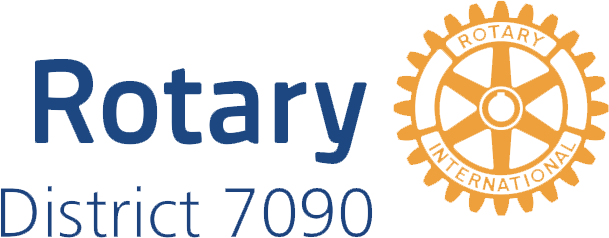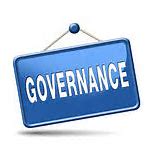| ||
| ||
We offer suggestions on good governance practices. These include ensuring that clubs have appropriate governing documents in place and that the clubs follow those documents. There are important governance practices that should be reflected in the governing documents. These include concepts such as the legal rights and responsibilities of board members and the special leadership roles that the officers of the club have.
2. What can the governance committee offer to help my club when it needs help?
The committee has identified the importance of training board members of clubs as to what the roles and responsibilities of board members are. These include the legal duties and responsibilities that the general law requires; behavioral traits of good board members and an approach to making decisions within the club.
The governance committee is knowledgeable about the standard Rotary documents for clubs and can help clubs as to what choices might suit smaller vs. larger clubs in those documents. Finally, if a club believes that it needs specific assistance in governance issues, the club can contact the committee for one-on-one assistance.
3. What are some of the most important duties that a Club’s directors should be aware of?
The general law provides specific legal duties for anyone acting in a role of club director. Perhaps the most important is the fiduciary duty: ‘fiduciary’ is the term applied to those who act for others.
In the case of a club, directors are selected by the club’s members to act for the general good of everyone in the club. This means that, in making decisions, club directors should always be guided by what is in the best interests of the club.
Acting in the best interests of the club can sometimes put directors into difficult situations. For example, if a director is being asked to vote on a decision where the director may have a personal conflict of interest then they would not likely be able to make the decision ‘in the best interests of the club’. The solution is for the director to declare that they have a conflict of interest and withdraw from participating in the debate or vote on the decision.
It is important that clubs – especially smaller ones – should how they will manage conflicts of interest. Unmanaged conflicts of interests can be serious problems if left unmanaged. The solution is to have considered the matter when there is no specific conflict presented so that, if a problem does occur, the club will know how to handle it.
4. What is a good behaviour for board members of a club to follow?
One of the easiest behaviours for board members to adopt is “ask questions’.
It can’t be that easy, can it?
The formal obligation of a board member is to “obtain reasonable assurance that the proposal made to the board of directors is consistent with the mission, vision and values of the club, its strategic and annual plans and its acceptable risks.”
How do board members “obtain reasonable assurance”? Yup, you got it, they ask questions!
What sorts of questions can directors ask?
A good start can be found in publications of the Chartered Professional Accountants of Canada. Search on Google for the publication “20 questions not-for-profit board directors should ask about overseeing management of risk”. As the title suggests, this will give you a start on questions relating to risk. You can then also discover many other similar publications on related topics.
5. Who should be making the proposals to our board?
The previous question suggests that various people should be making proposals to the board. Who generally makes those proposals?
Your club is probably organized with different directors and officers who have specific duties. In addition to the roles of President, Secretary and Treasurer, the Standard Rotary Club Constitution suggests the following committees: a) club administration; b) membership; c) public image; d) Rotary Foundation; and e) service projects. Each of these committees will report to a director. When an officer or director wants to have the club decide, that is who makes the proposal to the board.
It is important to understand that it is not up to just the President to make proposals; each director and officer other than the President is also responsible for proposing decisions to the board. Once a person’s proposal is approved by the board, that person then continues to be responsible for the implementation of the proposal.
6. If a board has concerns about a proposal, how should the board respond?
In obtaining their reasonable assurance, sometimes the board is not ready to approve the proposal as presented. In this case, can the board substitute what it thinks the proposal should say?
It is part of human nature that, if we tell someone what to do and it doesn’t work out, the person we told will just say “but I did what you told me. If it didn’t work, then it must be your fault for giving me incorrect direction!”
The same holds true for a board. Let’s say the proposal is from the service project committee to hold a RibFest. When the board conducts its discussion, someone says: ‘RibFests by clubs are overdone in our area, lets do a Lobster Boil instead’ and the board approves that. When it goes back to the committee to implement, initially half of the committee resigns and then the remaining part of the committee tries to do what the Board approved. The whole thing is a disaster.
What went wrong?
The answer is simple: the committee proposed a RibFest. If the board had approved that, each person on the committee would have had a personal commitment to making that work. When the board changed the objective, that personal accountability also changed.
What does a board do in these circumstances? If a board is not ready to approve a proposal as presented then, in turning it down, the board must ensure that the person making the proposal understands why. Were there risks that were not being managed? Were there other considerations that were not dealt with?
This Q&A series is part of a regular series of articles on club governance. If you would like to make suggestions for topics for future articles or have questions that you would like answered in this forum, please do not hesitate to contact Marcel Mongeon by telephone at 877-390-1818 or by email at marcel@ezcpd.ca.

 This month’s Board Corner is structured as a series of Questions and Answers. These are current topics and, if you have your own questions to offer, we would be happy to hear from you.
This month’s Board Corner is structured as a series of Questions and Answers. These are current topics and, if you have your own questions to offer, we would be happy to hear from you.